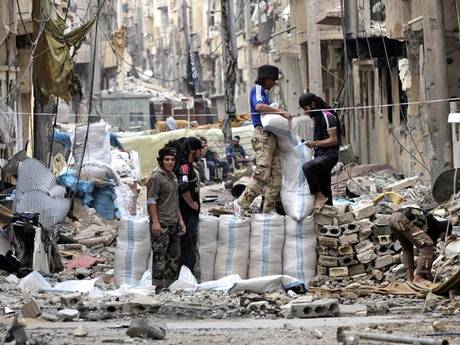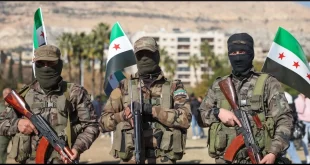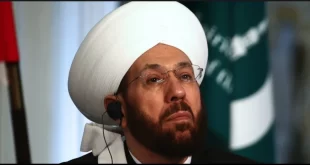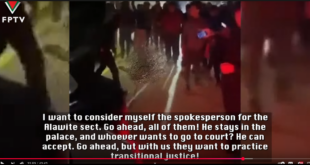
Dec 3, 2013, the Independent
The spectre is looming of a second Syrian civil war with the head of the opposition’s official forces declaring that he is prepared to join regime troops in the future to drive out al-Qa’ida-linked extremists who have taken over swathes of rebel-held territories.
General Salim Idris, the commander of the Free Syrian Army warned that in particular Isis (Islamic State of Iraq and al-Sham), with thousands of foreign fighters in its ranks, was “very dangerous for the future of Syria” and needs to be confronted before it becomes even more powerful.
Western security agencies now believe that Syria poses the most potent threat of terrorism in Europe and the US from where hundreds of Muslims have gone to join the jihad. MI5 and Scotland Yard’s anti-terrorist branch recently tackled the first case of men sent from there specifically to carry out attacks in London.
One senior Western intelligence official stressed that the Syrian regime’s forces must be preserved for the battles ahead against the Islamists and the need to avoid the mistakes made in Iraq and Libya, where the army and police were disbanded with the fall of Saddam Hussein and Muammar Gaddafi, allowing terrorist groups to rise in a security vacuum.
The official held that talks between the regime and rebels set to take place in Geneva in January could be the beginning of the formation of an anti-al-Qa’ida front in Syria, along with a negotiated settlement to end the conflict which has claimed more than 117,000 lives so far and made millions refugees inside and outside the country.
Speaking in Istanbul, General Idris, a former officer in the regime’s army, said he and his associates were dropping the precondition that Bashar al-Assad must leave power before the Geneva meeting takes place. Instead they would be satisfied if his departure were to take place “at the end of the negotiation process” when General Idris will join forces with the remainder of the regime to mount an offensive against the Islamists.
However, the opposition would like to see evidence of good faith from the regime, which would include allowing supplies to get through to communities trapped by the fighting.
General Idris complained his men were having to fight a war on two fronts: they have, he claimed, fought al-Qa’ida at 24 different locations in the last six months while at the same time facing poundings from President Assad’s warplanes and artillery.
What is left of the moderate opposition forces are bitterly critical of Western powers, including Britain, for encouraging people to rise up against the regime, but then doing little to help. Meanwhile, Isis and another Islamist group, Jabhat al-Nusra, have grown in numbers and influence due to money and arms from Qatar, Saudi Arabia and other Gulf states.
There was particular disillusionment when no military action was taken by the West despite the crossing of Barack Obama’s “red line” with use of chemical weapons in the Damascus suburb of Ghouta by the regime in August. Moderate groups complained this was followed by some of their younger members defecting to the jihadists.
The jihadists have been occupying areas in the provinces of Aleppo and Idlib with moderate fighters being killed or forced to flee. Senior officers in the FSA have been among the casualties, one of the most high profile Kamal Hamami, a commander who was shot dead when he travelled to Latakia, an enclave of the Alawite community from which President Assad is drawn, to try and avert a sectarian massacre by the besieging Sunni Islamists.
The FSA has now produced an intelligence dossier charting the rise of the jihadists with Isis “seeking complete domination in liberated areas”. The document estimates that Isis alone now has 5,500 foreign fighters, who “form its main backbone in sensitive operations” as well as 2,000 indoctrinated Syrians from the northern part of the country. In addition there are 15,000 others who provide support to the group.
The foreign fighters are recruited by a network headed by Abu Ahmad al-Iraqi who, as the name suggests, had served in Iraq. The “most dangerous and barbaric” of these are 250 Chechens based in Aleppo under Abu Omar al-Chechen. Once they reach Syria the foreign volunteers are “fitted with explosive vests and threaten all who dare to confront them”, says the report.
“Isis employs the policy of kidnapping in the areas in which it is deployed,” the dossier continues, pointing out its prisons now hold more than 35 foreign journalists as well as 60 political activists, and more than 100 FSA members. It has set up ambush points in the routes from the Turkish border for abductions.
 Syria Support Movement solidarity with the Syrian people
Syria Support Movement solidarity with the Syrian people




